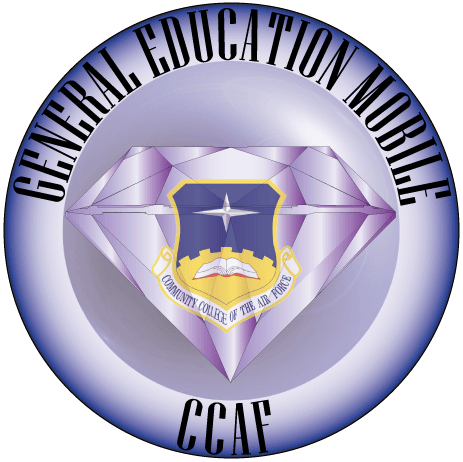General Education Mobile Program
RMU is proud to participate in the GEM program. This program allows Air Force and Space Force service members pursuing their associate’s degree through the CCAF to earn 15 of the 64 credits they need for a CCAF associate’s degree.
Classes can be completed fully online. All participants will have access to the following resources at RMU: Help Desk for online technical support, the Tutoring Center, that includes online tutoring services offered by Brainfuse, the Writing Center for online writing assistance, and online and distance counseling provided by the Counseling Center. In addition, each participant will be assigned an academic advisor that they can meet with virtually.
If you choose to pursue further education, CCAF associate degree credits can be transferred toward a bachelor’s degree at RMU. RMU is rated in the top 10% of Best Online bachelor’s degrees by U.S. News & World Report.
Courses are offered on-ground and online in 8-week sessions or a 15 week semester at $250 per credit hour.
- Course Information
-
General Education (15 Semester Hours)
-
Written Communication (3 Semester Hours)
-
Oral Communication (3 Semester Hours)
-
Mathematics (3 Semester Hours)
-
Social Science (3 Semester Hours)
-
Humanities (3 Semester Hours)
-
- Start your application process today, choose the Transfer Student option.
-
To request your transcripts to and from Air University, please follow the steps from Air University's Office of the Registrar.Please allow 45 days for the coursework to appear on the CCAF Web Progress Report. More information can be found here.
-
Please fill out the CCAF enrollment form. This form will be submitted to the CVMF (Center for Veterans and Military Families), we will review and contact you with scheduling options.

